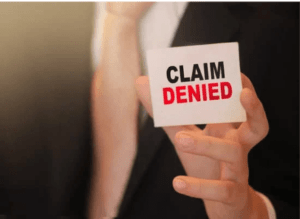
Understanding Your Deferred VA Claim
VA disability benefits can be a lifeline if your ability to earn a living is limited due to a service-connected disability. So, it’s not unusual for veterans who have submitted a disability claim to be anxiously on the lookout for the decision letter. Approval is great. A denial probably means you need to speak to a VA disability benefits advocate and determine the best path to appeal–and you’ll have to act quickly. Either way, you know what your next steps are.
Getting a letter that says your claim has been deferred can be disconcerting and confusing–especially if you didn’t realize that was one of the possibilities. Here’s what you need to know about deferred VA disability claims.
What Does Deferred Mean in a VA Disability Case?
When you receive a letter that says your claim has been deferred, it simply means the VA has decided not to make a decision yet. It’s not necessarily a bad sign, except that it means your claim will take longer and you may need to put in some effort.
The best way to approach deferral is to treat it as an opportunity. When your claim is deferred, that means the VA doesn’t think they have enough information to make a decision. That means you have a chance to provide additional evidence to tip the scales in your favor.
If you do get a notice saying your claim is deferred, you will likely be asked for specific additional documentation. It’s important that you act promptly to provide whatever has been requested. If you are unsure about exactly what the VA is asking for or how to obtain what they’ve requested, it’s important that you follow up or speak to a VA disability benefits advocate right away.
Call 1-888-373-4722 or complete a Free Case Evaluation form
Avoiding Deferral of Your VA Disability Claim
If you can avoid a deferred VA claim, you want to do so. That’s not because deferral hurts your chances of approval, but because you’ll wait longer to start receiving benefits. The best way to avoid having your claim deferred pending additional information or evidence is to make sure you are thorough in filing your initial claim. That means providing all necessary documentation, including:
- Service-related information, which may include dates of service, locations you served and your roles within the military
- Medical documentation, both from your military service and from the physicians and other medical providers who have treated you since you left the military
- Buddy letters, such as a letter from a fellow service member who was present for the event that triggered your service-connected disability or a family member who can speak to when your symptoms started or worsened and the day-to-day challenges you face
- A nexus letter, if your condition isn’t presumed service connected
- Any other documentation necessary to support your claim.
The best way to ensure that you have put together an effective, thoroughly-supported VA disability claim is to work with an experienced VA disability benefits advocate from the start. At Disabled Vets, our advocates have deep knowledge of the VA disability claims process. We know what the VA is looking for, and we know what types of omissions most commonly trigger deferral.
Frequently Asked Questions about Deferred VA Claims
Is a deferral bad news?
A deferred VA claim is no less likely to eventually be approved than one that is decided without additional information. However, it’s your responsibility to do what the VA has requested in order to move your claim forward. If the VA has to decide the claim without the additional information they’ve requested, that may be bad news–because they’ve already told you they don’t think they have enough information to decide the claim in your favor.
What should I do when I get a notice of deferral?
A notice of deferral is an opportunity to strengthen your claim and improve your chances of approval. It also means your claim may be denied if you don’t provide adequate additional documentation. You must make sure to follow the instructions in your notice, and to do so in the time allowed. So, the very first thing you should do when you get a deferral notice is read the letter carefully and make sure you understand it.
If you are working with a disability benefits advocate, you should contact them right away. If you are not, you should seriously consider reaching out for help in supplementing your claim.
What might I be required to do after a deferral notice?
The requests in the deferral notice will vary depending on what type of information the VA feels your claim is lacking. It may be additional existing medical records, further information about your military service to establish service connection, or even a request that you undergo an exam or further medical testing.
Call 1-888-373-4722 or complete a Free Case Evaluation form
Get Help With Your Deferred VA Claim
Determining exactly what the VA needs and how to obtain those records can be daunting, and you usually won’t have much time to act. You don’t want to miss out on the opportunity to strengthen your claim and improve your chances of approval. Though a deferral slows down your VA disability claim somewhat, the appeal process if you’re denied can take much longer.
Fortunately, you don’t have to figure it out on your own. Whether you’re just preparing your claim, have been informed that a decision has been deferred pending additional information, or need to appeal a denial, an experienced disability benefits advocate can help.
The expert VA disability advocates at Disabled Vets are fully dedicated to ensuring that our military veterans receive the benefits they’re entitled to, and that the process is as stress-free and efficient as possible. We have in-depth experience with claims, responses to deferral notices and other VA requests, supplemental claims, appeals, and other matters impacting your VA disability benefits. Contact us today HERE or call us at 1-888-373-4722
Call 1-888-373-4722 or complete a Free Case Evaluation form
Read More Here:
- VA Disability Compensation Rates
- What Is TDIU and How Can I Get It?
- Types Of VA Disabilities
- SSDI For Veterans
- Can My Spouse Receive My VA Disability After I Die?
- VA Benefits For Spouses of 100% Disabled Veterans
- The Easiest Way to a 100% VA Disability Rating
Call 1-888-373-4722 or complete a Free Case Evaluation form







